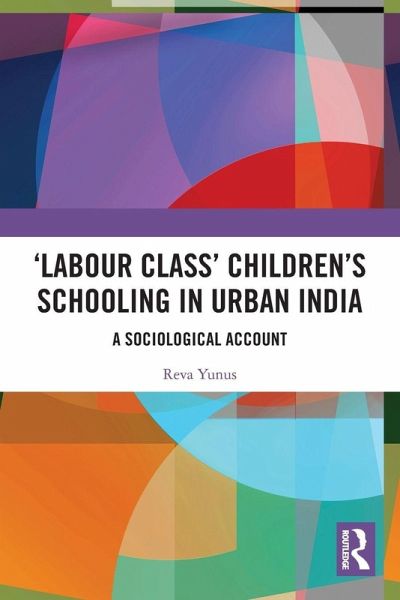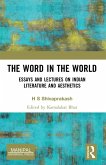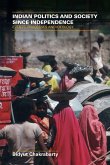Based on ethnographic research conducted in an urban, coeducational school, this book challenges the modernist, Eurocentric and ahistorical understandings of childhood that prevail in educational policy-making in India, offering a contextualised account of childhood through an engagement with 'poor' children's lives at home and school.
Hinweis: Dieser Artikel kann nur an eine deutsche Lieferadresse ausgeliefert werden.
Hinweis: Dieser Artikel kann nur an eine deutsche Lieferadresse ausgeliefert werden.
'Through a much-needed focus on how 'labour class' children and their families persist with schooling, Reva Yunus offers a powerful sociological analysis of urban childhood and young people's gendered negotiations with education in India. Readers interested in how marginal childhoods and classroom experiences are deeply shaped by gendered social processes and structural constraints of poverty, caste, stratified schooling and unwaged and waged labour will treasure this timely account.' - Sarada Balagopalan, Associate Professor of Childhood Studies, Rutgers, The State University of New Jersey, USA
'Based on rigorous ethnographic work and interviews with parents and pupils in urban central India, Reva Yunus has produced a sophisticated and sharp analysis of how caste, class and gender (re)shape social reproductive labour and so doing challenges the way dominant development narratives formulate gender issues and the school/labour binary. This book should be read by all those who are interested in issues of gendered inequalities and educational and social deficits.' - Shirin M. Rai, Distinguished Research Professor, Politics and International Relations, SOAS, University of London, UK
'This book is a valuable contribution to scholarship on the schooling of children and its relation to labour, examining school experiences and social relations of those who teachers label 'labour class' children. Drawing on economic sociology, political economy and feminist critiques of class and caste patriarchy, the book expands the scope of work on marginality and educational inequality in the Indian context through careful ethnographic inquiry into the resonances of wider structural inequalities of gender, class and caste in schools and classrooms.' - Nandini Manjrekar, Professor, School of Education, Tata Institute of Social Sciences, India
'Based on rigorous ethnographic work and interviews with parents and pupils in urban central India, Reva Yunus has produced a sophisticated and sharp analysis of how caste, class and gender (re)shape social reproductive labour and so doing challenges the way dominant development narratives formulate gender issues and the school/labour binary. This book should be read by all those who are interested in issues of gendered inequalities and educational and social deficits.' - Shirin M. Rai, Distinguished Research Professor, Politics and International Relations, SOAS, University of London, UK
'This book is a valuable contribution to scholarship on the schooling of children and its relation to labour, examining school experiences and social relations of those who teachers label 'labour class' children. Drawing on economic sociology, political economy and feminist critiques of class and caste patriarchy, the book expands the scope of work on marginality and educational inequality in the Indian context through careful ethnographic inquiry into the resonances of wider structural inequalities of gender, class and caste in schools and classrooms.' - Nandini Manjrekar, Professor, School of Education, Tata Institute of Social Sciences, India








